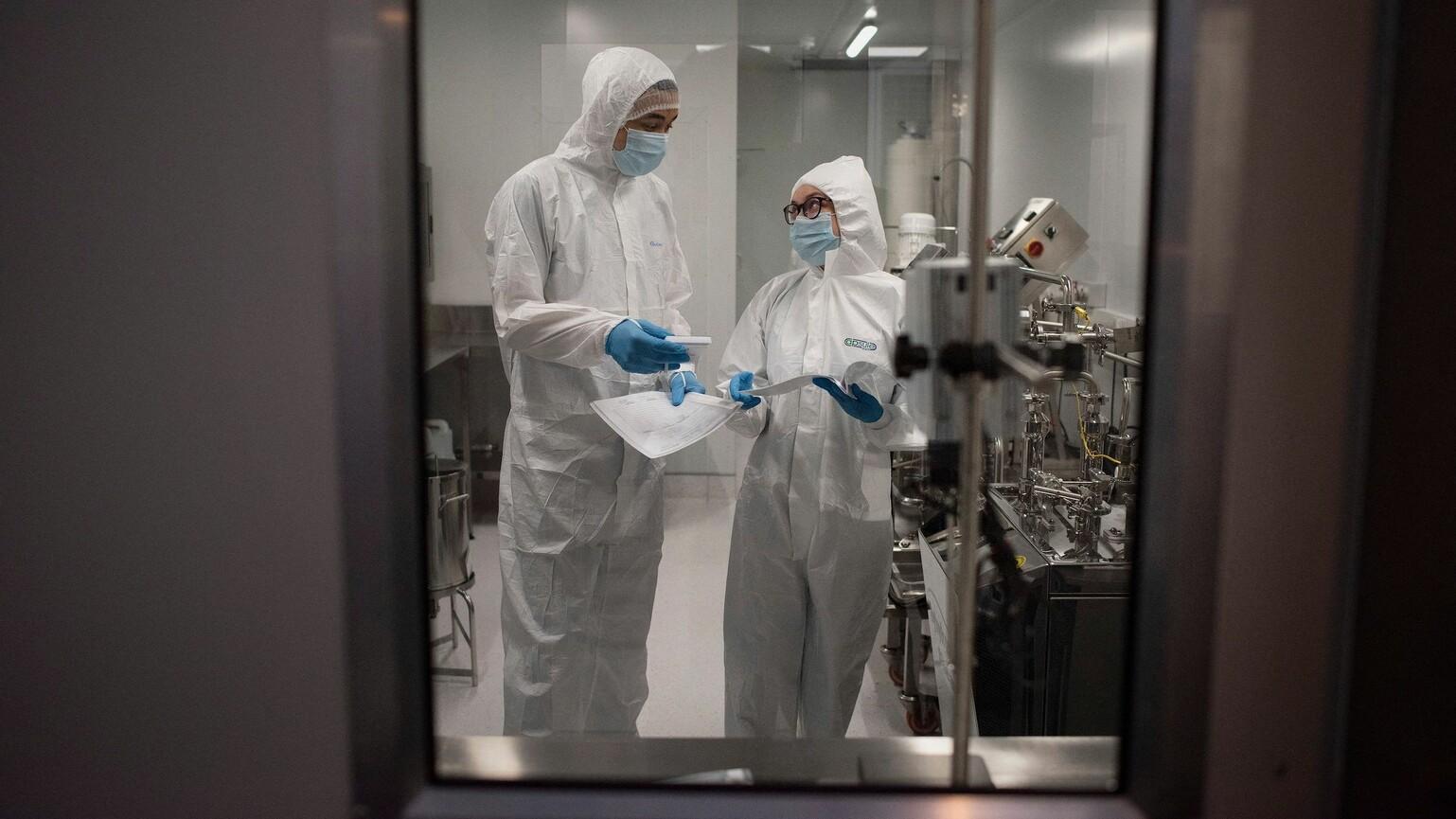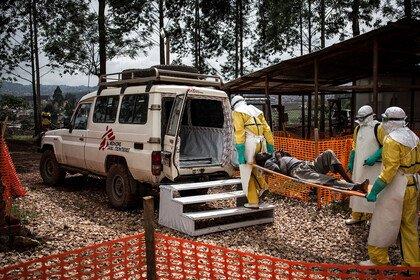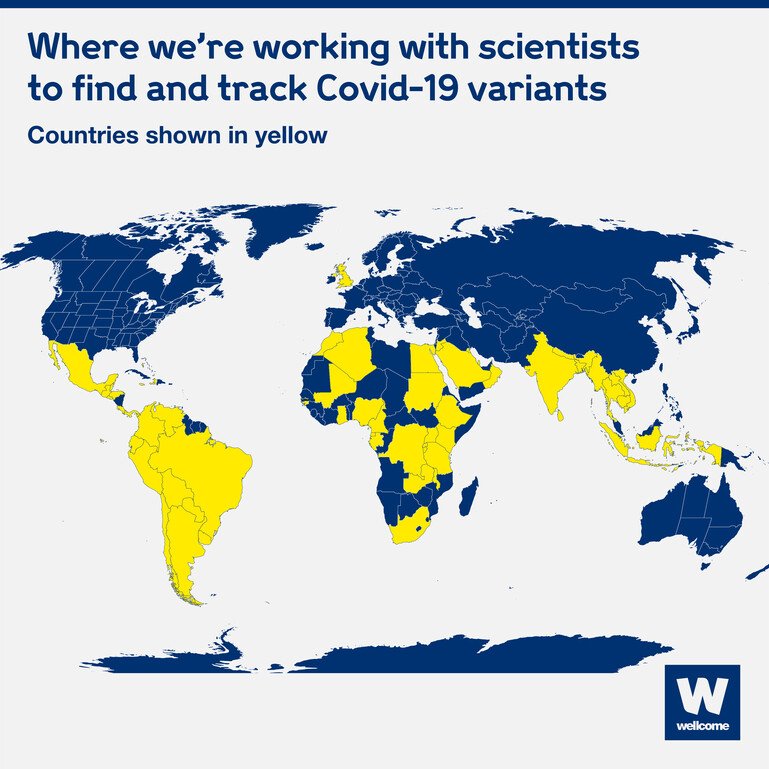
An expert explains how to track coronavirus variants
New Covid-19 variants could jeopardise a lot of the work that has been done to contain the pandemic. Genomic surveillance can help us track and contain them.
The Omicron variant has swept across the world, bringing with it a new wave of uncertainty about the future of the Covid-19 pandemic. One thing we can be certain of, however, is the world-leading science that helped discover it.
Here are four reasons to celebrate the science (and scientists) that alerted the world to Omicron.

Rodger Bosch, AFP via Getty Images
In a matter of weeks, world-leading scientists across southern Africa identified, tested and confirmed that they had found a new Covid-19 variant.
The swift and transparent work of these scientists provided the rest of the world with time to prepare for the oncoming surge of new cases. From renewed social distancing efforts to bolstered vaccination programmes, governments were able to respond in a matter of days – not months – to try to slow transmission.
"South Africa needs to be praised and acknowledged for the quality and speed of the public health and genomic science in South Africa, sharing the data immediately, supporting the region and the world."
As long as the virus continues to circulate, new variants will emerge.
With new variants come new and often unknown risks. Genomic surveillance is the best tool we have to discover and track these variants.
By analysing lots of virus samples, scientists all over the world can help us understand what is happening to the virus.

New Covid-19 variants could jeopardise a lot of the work that has been done to contain the pandemic. Genomic surveillance can help us track and contain them.
This is how scientists discovered Omicron and its concerning mutations.
They knew that it was crucial to report their findings to the world, and by sharing their data quickly at a national and international level they helped governments make informed public health decisions to try and slow the variant’s spread.
Scientists were able to identify and share information about Omicron quickly because of the robust and expert genomic surveillance networks that exist in South Africa – but these tools are not available everywhere.
Pressing play on the video above will set a third-party cookie. Please read our cookie policy for more information.
Watch the video to learn what the world needs to do to be better prepared for pandemics.
This is a story about the importance of being prepared.
And who better to tell that tale than the Ants - they can certainly teach us a thing or two about preparing for long winters.
This is Ava. She comes from a long line of deceased ants.
Year after year, disease had taken its toll on these communities.
Each time they learned a little more about defending themselves, but the only thing they knew for certain was that another disease would come. Which is why Ava took a job at the Arthropod Communities Health Organisation.
Ava wanted to take all the knowledge they’d gathered about diseases to create one big master plan to beat the next one.
First things first, they needed some money!
Ava explained that to research and produce the tools they needed to beat the next disease, funding was required. Lots of it.
Unfortunately, not everyone agreed. Some of her colleagues wanted the money for more local projects.
But without funding, there'd be no research and without research there'd be no vaccines to protect vulnerable insects.
Ava had to push on, she needed to get the Surveill-Ants surveillance team on board. Fast!
Ava told them that it was essential to be able to track and contain diseases before they spread.
Some colleagues disagreed with this use of the Surveill-Ants team.
Ava explained that if they couldn't see where the outbreaks were happening, they couldn't stop them spreading.
It was time to move on!
Making vaccines around the world was crucial to protect everyone, everywhere.
Again, sadly, not everyone agreed.
Without giving insects everywhere the tools to make their own vaccines, many would be left vulnerable.
Next stop, the Planning HQ!
This is where all the insect leaders met, at the Arthropod Communities Health Organisation.
Ava started to speak. As she finished outlining her master plan, there was silence... then a cacophony of noise.
Perhaps they'd finally agreed on a plan to protect everyone, everywhere.`
Lack of funding, support and research expertise prevents many countries from collecting or processing the data required for genomic surveillance. This means that the virus can transmit and mutate unchecked through large portions of the population.
To be able to prevent and control outbreaks before they spread, we need to know where they are as soon as possible. This requires a global and coordinated genomic surveillance system.

Ebola is now a disease that can be diagnosed and treated. To prevent Ebola outbreaks from occurring in the first place, the world needs to be proactive to be better prepared.
The fast and transparent discovery of the Omicron variant makes a strong case for a global network of real-time surveillance. If scientists can't see what's happening in many parts of the world, they can't work on creating the tools needed to combat new diseases or variants.
"Sharing the data is fundamental for managing the pandemic. We can only control the pandemic if it's a global effort because if a variant of concern appears in one part of the world, it affects the whole world."
Global leaders must support and join the World Health Organization's effort to build this global network.

Wellcome
From South Africa to Bangladesh to Venezuela, Wellcome is working with researchers to increase genomic surveillance capacity all over the world.
Our goal is to build on existing resources and coordinate a global network of expertise to help bring Covid-19 under control and prevent future epidemics.
We’re funding research to better understand what causes and drives infectious diseases to escalate and the solutions to control their impact. Explore our current funding call:
Infectious Disease Award: Understanding dengue and Zika spread, immunity and clinical outcomes